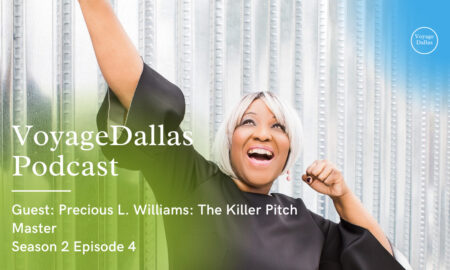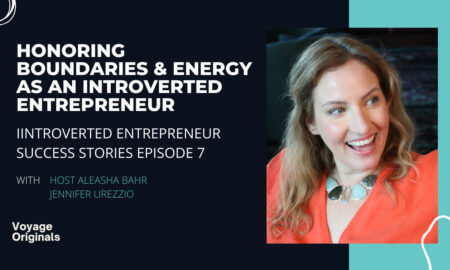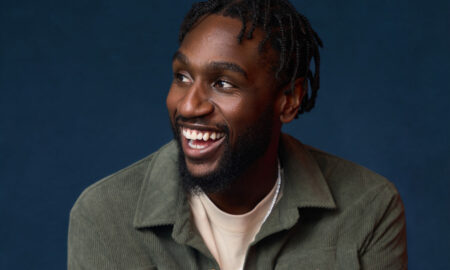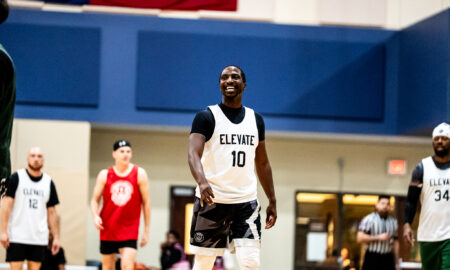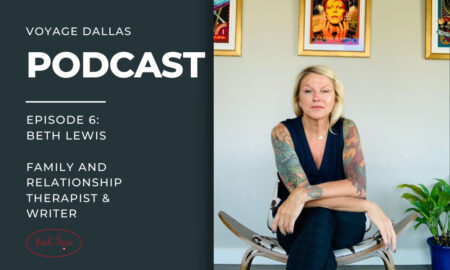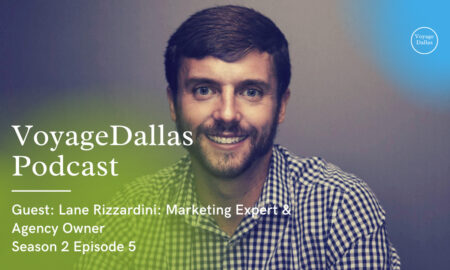
Holly Lockett of Frisco Counseling and Wellness
We’re so excited to introduce you to Holly Lockett. She’s incredibly an incredibly thoughtful therapist and business owner and we learn a ton every time we connect with Holly. She’s also a content partner, content partners help Voyage in so many ways from sponsoring our mission, to spreading the word about the work we do and collaborating with us on content like this.
After listening to today’s episode, if you’d like to learn more or connect with Holly, the links below might be helpful:
Connect with Holly Lockett of Frisco Counseling and Wellness:
- Holly Lockett’s Voyage Story: https://voyagedallas.com/interview/meet-holly-lockett-frisco-counseling-wellness-north-dallas-frisco/
- Frisco Counseling and Wellness Website: www.friscocounselingandwellness.com
- Connect with Holly Lockett on Facebook: https://www.facebook.com/hollylockettlpc/
Transcript:
Holly Lockett: [00:00:00] I think that we’ve seen a lot of positives come out of this, where more people are seeking help. And because we all had to go virtual for almost a year, people are realizing that therapy is super accessible. And so we can be in our house, in our car. I’ve had people, I’ve actually had somebody at Disney that just got out of line and went away from everybody and was able to do a session there because they were having some anxiety issues.
Holly Lockett: So it is very cool to see that we can truly do this anywhere. And I love that
Alex (Host): Welcome to the voyage Dallas podcast, where we interview some of the brightest and most interesting entrepreneurs, artists and creatives from in and around the Dallas Fort worth area and ask them about their lives, careers and the values and principles that drive them. I’m Alex Friedman. And on the show today, you’ll meet Holly Lockett, [00:01:00] odor and clinician at Frisco counseling and wellness, where she specializes in trauma attachment disorders and grief.
Alex (Host): Holly’s also avoids content. Content partners helped voyage in so many ways from spreading the word about the work that we do, sponsoring our mission and collaborating with us on content like this in our conversation, Holly and I not only discuss how therapy has changed since the COVID-19 pandemic, but how there has been a broader cultural shift in our understanding of therapy.
Alex (Host): And it’s important. I was particularly struck by her discussing how the younger generations are not only open to therapy, but regularly conversing with each other, with the things they’re learning from their therapists. The whole conversation was not only a great reminder of how powerful therapy can be, but that all of us should be seeking out the same kind of help for our mental health as we do for our physical.
Alex (Host): Now the conversation with Holly
Alex (Host): Holly, thank you so much for joining us on the, on the [00:02:00] show. Well, I’m happy to be here to get things started. Can you just tell us a little bit about
Holly Lockett: your work? So my work is never boring. Um, I am a therapist in Frisco. I own a private practice there where we’ve got. Uh, 12 counselors. We’ve got some life coaches and then we have a psychiatrist on staff.
Holly Lockett: And so we’re super busy. We see a lot of really heavy things every day and just grateful that we can serve the community. And
Alex (Host): what is your special, your specialization?
Holly Lockett: So I specialize in, um, traumatic grief, trauma and attachment disorder. The easy stuff, you know? Yes,
Alex (Host): certainly. Uh, what, what kind of led you down that path to, to those being your specializations?
Holly Lockett: Every job I’ve ever had has been working with really hurting human beings. So I’ve just fallen into my lap really. And then, um, in 2007, I lost my brother unexpectedly and I saw what the impact of that did to my family. [00:03:00] And my niece and just how we don’t handle grief well in this country at all. And I really wanted to try to change that.
Holly Lockett: And then the adoption piece I am adopted. And so I kind of know what that’s like to have some attachment issues and all of the confusion and questions that go with that. And so both, both things are very close to my heart because I understand both of them pretty well.
Alex (Host): One of the things you you mentioned is, uh, It sort of felt like that you simultaneously through life experience fell into it, but also how they, uh, all the jobs that you’ve maybe have had, it has felt like you’ve been filling this role.
Alex (Host): Can you talk a little bit more about that?
Holly Lockett: I got an internship and undergrad at a police department working with abused children and kids who have been, uh, cited for their first juvenile offense. So that’s where it started. And then, um, right after graduate school, or, I mean, right after undergraduate school, I got a job at that police department kind of doing the same thing.
Holly Lockett: And then I got to work for drug court [00:04:00] and then we moved to Dallas and I worked, um, in the court system for Dallas county and I got to work with, um, domestic violence drug court there as well, and then organized crime. And then after I lost my brother, I made a career shift to something that was, was still working with really hurting people, just in a different.
Alex (Host): Yeah, that. Uh, is an incredible amount of pain too, to be dealing with and working through on a, on a daily basis. And so I guess that the, my biggest question right out of the gate from that is how do you protect yourself? Uh, from, from reliving some of your own grief and trauma as you work with clients, uh, and yet, and yet remain fully present with them.
Holly Lockett: So I’m going to answer that in a couple of different parts, the part where I have my own grief and trauma, I’ve done a lot of work and I continue to do a lot of work just on myself. I tell all my interns and anybody [00:05:00] who’s coming into our field. No matter what has happened to you, it’s going to show up across from you.
Holly Lockett: So someone’s going to come into your office and they’re going to have a similar story, or someone’s going to come up into your office and just really pull on your heartstrings. And if we haven’t done our work, we’re not good for anybody else. So I think that that’s number one and then having really good emotional boundaries around things.
Holly Lockett: I really try to remember that. I see a lot of people, every. And I can’t bring in the person before them issues into their session or the sessions afterwards, because then I’m not being present and a hundred percent into what they’re saying.
Alex (Host): Emotional boundaries seem to be, uh, one of those things that many, many people have difficulty setting.
Alex (Host): Could you give any kind of, uh, overview or advice that maybe, maybe the advice is just, you know, seek out a therapist to help you set these emotional boundaries? Um, of just, how do you navigate doing that? Uh, because I know that certainly [00:06:00] guilt can start to attach. And a lot of those situations where we’re folks are, you know, I feel guilty leaving this behind, so to speak.
Alex (Host): Can you just kind of speak to ways to deal with setting those boundaries?
Holly Lockett: So I think first and foremost, the, to your earlier point, that everybody needs to have a therapist, therapists need to have therapists. We have to have somebody that we can talk to about all of these issues and just how they affect.
Holly Lockett: And then we also have to remember that as long as we’re present and we’re doing the very best we can with the skills that we have, that that’s all we can do in that 45 or 90 minute time slot. And we just keep trying to do better with everybody that comes in front of us and with all of those clients, every time we see them
Alex (Host): shifting gears just a little bit and not even too much.
Alex (Host): Cause I think that. Your work, certainly must’ve changed directly based on the COVID-19 pandemic. But then also I think, um, I’m curious if it changed culturally, as I feel, you know, as I read various different [00:07:00] articles and things, talking about how America and the world is dealing with a collective grieving of the pant from the pandemic, I’m going to open it up and I’m sure I’ll have follow-up questions.
Alex (Host): I’m sure there’s plenty to say about how your work has changed in light of the pandemic.
Holly Lockett: So I’m going to start with the positives. I think that we’ve seen a lot of positives come out of this, where more people are seeking help. And because we all had to go virtual for almost a year, people are realizing that therapy is super accessible.
Holly Lockett: And so we can be in our house in our car. I’ve had people, I’ve actually had somebody at Disney that just got out of line and went away from everybody and was able to do a session there. Cause they were having some anxiety issues. So it is very cool to see that we can truly do this anywhere. And I love that the other piece is with online work.
Holly Lockett: It’s not as scary, you know, walking into somebody’s office for the first time. Having [00:08:00] never met them and having to spill out your guts in their territory is very difficult. And so when you can be in the comfort of your own home, I think it’s much easier for people. So those are, and I think we’ve also seen a lot of people coming together.
Holly Lockett: And families sitting down and having meals together again and talking to their children because we had everything canceled, you know? And so we have a whole lot of time to be together. Now that said, let’s talk about the negative pieces of. We’re seeing a lot of issues within marriages, because this is the time that we have spent the most with our spouses or with our children.
Holly Lockett: Um, there’s a lot of grieving because everywhere you look is death and destruction and terrible. And we just have not had good things on the news in the last couple years, and it really is taking a toll on everybody, but I’m seeing it take a huge toll on. Kids and teenagers, because that’s the time where you’re supposed to be innocent and looking at the world, like, it’s you endless possibilities.
Holly Lockett: And now there’s just a lot of [00:09:00] fear. So with the
Alex (Host): shift to digital, what has that done to, to your work day? I mean, are you, what’s the blend of clients in person and clients online and, and how does that.
Holly Lockett: Well, I try to structure my days where like Wednesday, for example, most of my people are online. So I worked from home on Wednesdays.
Holly Lockett: Other than that, it’s definitely a mix and it’s, it’s, it’s better because I can be more flexible and it’s harder because I can be more flexible. So if there’s a crisis and I’m, you know, making dinner, I can hurry up and finish and I can get on a call with that client. Versus when I was in my car, we could maybe just do a phone session.
Holly Lockett: Um, but then it’s harder to have those professional boundaries because especially when everything was shut down, everyone knows that we’re home. And so there was more expected out of us from our clients. And I think we showed up more because we knew how terrified and hurting people were. But then, you know, then we have blurred boundaries where we think that, that we can do that all the time.
Holly Lockett: [00:10:00] And it’s different.
Alex (Host): Um, I, I, I’m going to post the work-life balance question here of how, how you, how you, how, how are you working through striking that? And then I will want to come back to, I have a few more questions about the difference between in-person and digital, but I, I think we’re, we’re at a good spot for a work-life balance question of, of how do you set those boundaries?
Holly Lockett: Well, I am a super lucky that I was able to, um, create a home gym during COVID and so I can work out a lot. So if I have breaks or if I have a cancellation. I can turn around and I can jump on my bike or my treadmill. And to me running is therapy for me. It helps me clear my head. It helps me just make sense of things.
Holly Lockett: So the more that I can do that, the better. Um, and then it’s, you know, spending time with my kids and with my friends and doing virtual happy hours and things like that to stay connected with the people that I really can’t.
Alex (Host): I think that’s great advice. Uh, and so coming back to the, the difference between a digital session and an in-person [00:11:00] session, the hypothetical person I’m going to pose for you as someone who is perhaps intimidated to come into the office, uh, but might be concerned that they’re not going to get the same benefit from digital, for whatever reason, how would you speak to that type of.
Holly Lockett: Well, so with those individuals, I try to encourage them to eat, to do whatever makes them feel the most comfortable. Nothing is super comfortable, but if they decide, well, you know, let me, let me try to just do this online thing. I walk them through the whole entire process. I let them know that they can be wherever they want to be in their house.
Holly Lockett: That they can have a blanket that they can have their dog on their lap. That whatever makes them the most comfortable is, is truly what we want to set first. And then the first session is really about rapport building and showing people like, you know, we, I am still a human on the other side of the screen.
Holly Lockett: And so are you, and we can really still talk some big feelings, not being in person. And a lot of people really, truly love.
Alex (Host): And you’ve you’ve [00:12:00] described before how your, how your team can, can help anyone. And when, when you described the practice, you know, that it does seem like you have a pretty broad range of, uh, of specializations and skills.
Alex (Host): Can you make the case for the benefits of therapy for.
Holly Lockett: Well, I think just like we go to the doctor for checkups and we get our oil changed and we do things to take care of ourselves and other ways, why not give ourselves the gift of being able to have a sounding board to walk into someone’s office or log on and talk about whatever is happening.
Holly Lockett: Cause everybody’s going through something right now and everybody’s gone through something, especially in the last two years. So why carry that with you? Why not have somebody that can just take it, take that on help you make sense of things. And then you go on with the rest of your day. And like I said earlier, even therapists, therapists, I truly believe that everybody needs to have a therapist because why not have that one person who one is your advocate, but also is super unbiased to tell you that.[00:13:00]
Alex (Host): Yeah, I think that’s a good question as well. You know, I think somebody might listen, listen to that and say, well, I have a sounding board. It’s my friend. So-and-so um, why, why should it be a professional, uh, therapist, as opposed to, uh, your friend?
Holly Lockett: Even if I really liked my clients, it’s my duty to them to let them know if they’re doing something wrong.
Holly Lockett: Or especially in relationship issues, we go tell our friends or our family and one, they look at our partners differently from that point on. And they’re going to tell you what they want, what you want to hear, because they love you so much. And like I said, like I can, I really like all of my clients, but I’m going to tell them their role and responsibility in different relationships or different situations.
Holly Lockett: And I don’t think friends do that all the time. I think I have some friends that do, but not, not everybody. In,
Alex (Host): uh, an earlier conversation that you and I had, you talked about, about pinching things on Netflix, and I’m also a Netflix bender. Um, and one thing that struck me as like going back to TV shows, not even, not even going [00:14:00] as far back as the nineties, but TV shows in the early two thousands, like jokes about therapy and going to therapy, uh, used to be, to be a bounded.
Alex (Host): And there was like a stigma attached to going to therapy. It seems like it’s culturally shifted in the past few years. Um, can you talk about that kind of cultural shift and if it’s, if it is actually happening where there’s less and less stigma attached to therapy.
Holly Lockett: So I will give you a story that I think is hysterical.
Holly Lockett: Last week, I was talking to one of my teenage clients and we were actually on that. And she was talking about how she was missing class because she was in her car to come and talk to me. And that one of her friends asked what she was about to do. And she’s like, oh, I’m going to go talk to my therapist in my car.
Holly Lockett: And her friend goes, well, who are you seeing? Cause I’m seeing this person. And then somebody else popped up. It was like, oh, you go there. Oh my gosh, I know that person. And they just had a whole conversation about. How everybody’s doing this now. So I think that we’re seeing a new [00:15:00] generation of kids, teenagers, college students, young adults that really want to have somebody that just has their back, that wants to talk through things that.
Holly Lockett: What’s happening. And then at the same time, you know, sometimes I have to reign them back in and go, okay, well, so not everything is generalized anxiety disorder, not everything of a panic disorder, not everything is depression. Like sometimes we just have bad days and here’s like, when it’s normal to worry and you know, things like that because they’re so open to it that they, they tend to go a little bit far, sometimes too, which I would much rather have that than the other.
Alex (Host): That’s so interesting. Yeah. I’ve, I’ve having that, uh, the, the opposite problem of what we’re we see an older generations.
Holly Lockett: Yes. It’s to see. And I work with all age ranges, so I’ll see the older generation come in and they’re like fidgeting in the lobby or there, they really like to be online too, because then nobody’s going to see them.
Holly Lockett: And then I have my other ones that are like, Hey, So [00:16:00] so-and-so is in my car. Do you care? And I’m like, well, there’s this HIPAA thing. Yeah. Your friends can’t come to therapy with you. And so the extreme difference is it’s really fun to see. And I think it’s just going to keep getting.
Alex (Host): That, that younger, that teenagers, the teenagers right now, they’re just so cool.
Alex (Host): Oh my
Holly Lockett: gosh. They all have a 16 year old and he is the coolest kid and his friends are amazing. And then I also have a 23 year old and even just seeing the difference between them, where it, my older one. They S they were much more open to therapy for sure, but not like the 16 year old and all of his friends and how they are so open and honest about how they’re feeling and what they’re going through.
Holly Lockett: That I love it. I mean, I love to, and not that I eavesdrop on their conversations, but they’re in my house a lot. So I’ll hear what they’re talking about and it just is, I get so excited to hear that they’re so honest.
Alex (Host): Yeah, that’s that’s so, so cool. And I think that that’s, that’s an interesting, [00:17:00] um, yeah, that micro generational divide too, between your 23 year old and your 16 year old.
Alex (Host): And so I guess that, that brings me to the question of, you know, maybe if it’s a teenager that you, you might see this, and it’s probably not going to be a problem, they’ll probably want to go to therapy themselves. Um, but do you have any advice for someone who sees a friend or a family member that’s in pain that might be resistant to therapy?
Alex (Host): And how maybe to start that conversation with them.
Holly Lockett: So I think that the very best way to encourage anyone is to lead by example. So talking about a time that you were struggling, that you went to therapy or that you wish you would have gone to therapy because it wouldn’t, you wouldn’t have suffered as long, you know, really personalizing it and making it so that the other person doesn’t think that they’re crazy, that they just need to have an extra resource.
Holly Lockett: And it’s very hard for us to see people that we care about in pain. And so I think that a lot of times. We will almost get irritable [00:18:00] with that person because you want them to get better so badly, but they’re not. And so to just take that stuff back and realize when they have to do it in their own time and that all we can do is really encourage and lead by.
Holly Lockett: What
Alex (Host): holds you back in your life?
Holly Lockett: Myself?
Holly Lockett: I probably should have a good therapist to answer for that, but the truth is myself. I mean, we’re all human and there are definitely days where, I mean, I know that I’m good at my job, but I doubt myself. And there are cases that I have that are really extreme and yeah. I wonder if I’m giving them everything that they need from me or from a therapist.
Holly Lockett: And at the same time, I’m kind of glad that I get in my own way, because I also think that when we start to think we know everything and when we have an ego in this field that we need to be done because we have to continue to be learning. Evolving with our clients.
Alex (Host): Oh, wow. That’s okay. So that’s really interesting cause this, I mean, this is, can I speak out of my own?
Alex (Host): Uh, [00:19:00] I’ve done some therapy in my life. I have not done nearly enough. I don’t currently have a therapist. I should fix that.
Holly Lockett: Um, I know a lot of really good people. If you want recommendations, let me know.
Alex (Host): Yeah. A hundred percent. And so just that concept of being okay with not having all of the answers when, uh, it feels like someone might go to therapy to get an answer and, and having to find that answer.
Alex (Host): And so that’s an interesting position to, to find yourself in of like, okay, do I need to have all the answers? Well, no, but I feel like I should write. Wow.
Holly Lockett: That’s the other two. I think that especially newer therapists think that they have to fill those gaps and sometimes we just have to be okay with the silence and let the person across from us process.
Holly Lockett: And we don’t have to have every answer to fix everything in that moment. You are a team and we do it together through time.
Alex (Host): That’s a powerful, yeah. Silence is definitely something that, [00:20:00] uh, societaly. I think we fear quite a bit, not just in those, in those moments,
Holly Lockett: then you’re vulnerable. And I think it’s a whole different kind of vulnerability that we don’t talk about sitting
Alex (Host): in those silences.
Alex (Host): Do you find that that’s a. A skill that, that you have learned or is that something like an innate ability that you’ve kind of always had for
Holly Lockett: me personally, it’s something that I have had to learn and work on through the years because I want to fix so badly and I want people to feel better quickly. And so I always wanted to have the solution and the answer.
Holly Lockett: And as you can tell, I talk a lot. And so at first silence was just uncomfortable for me in general, because you’re just sitting. Staring at each other, but then I would watch people think, you know, how you can just see the wheels turning in somebody’s head or you see the light bulb go off. And I realized that me taking that step back and allowing them to process was truly the most like [00:21:00] wonderful gift I could give them was just to let them think about it on their own.
Alex (Host): And then what motivates you?
Holly Lockett: Watching people heal because I work with some really tough cases. When people walk through my door, it’s at the worst point of their life, nobody comes to just, you know, say hi to me. And so when I get to watch them go from that worst point to not needing me anymore, you know, I always joke with my clients, like the best compliment I can get is when you fire.
Holly Lockett: Because it’s true, you know, I’m never going anywhere and people can come back in whenever they need me to, or when they need to. And I’m there, but when you don’t need me regularly, it truly is the best compliment that I can get. That’s really, really
Alex (Host): powerful. This whole conversation has been really powerful.
Alex (Host): Thank you. Good. Yeah. That’s yeah. Holly, thank you so much for joining us on the show today.
Holly Lockett: Definitely. It was great to be here.
Alex (Host): [00:22:00] Um, uh, I just want to give you also a chance to where can people find you if they want more information?
Holly Lockett: So we are online. Frisco counseling and wellness.com. We are on Instagram at Frisco counseling and wellness, and then we’re on Facebook at Briscoe counseling and wellness.
Holly Lockett: So pretty, pretty easy to find us. You can Google us and all of our stuff will pop up.






